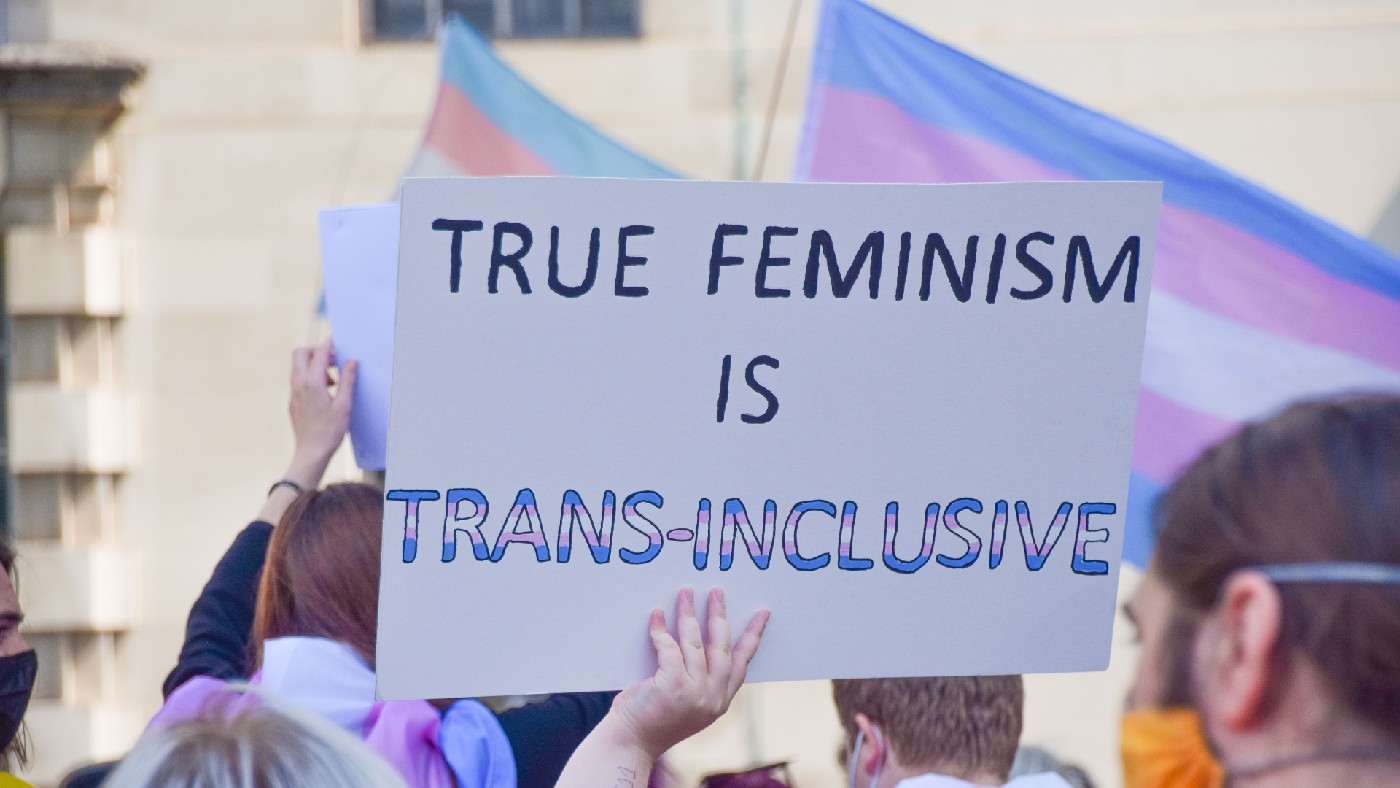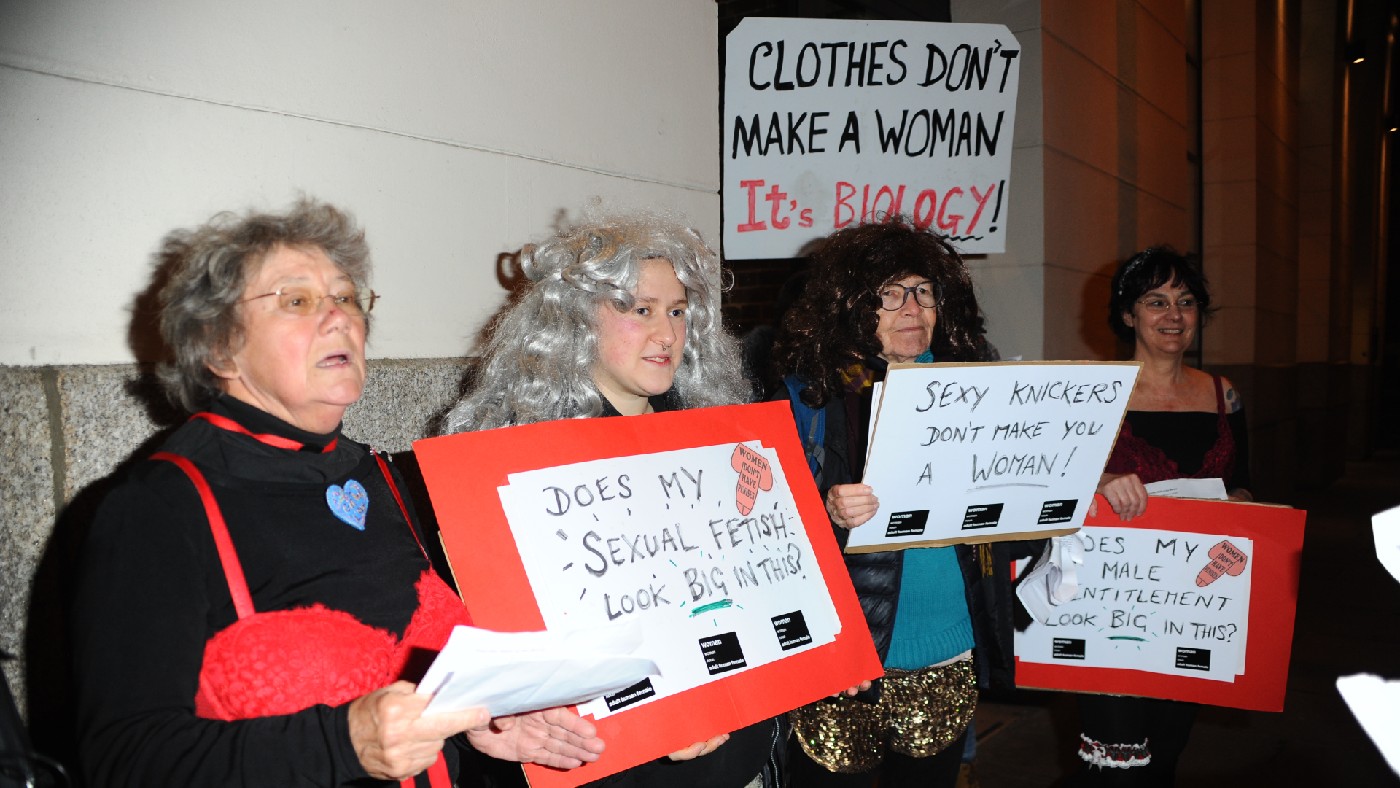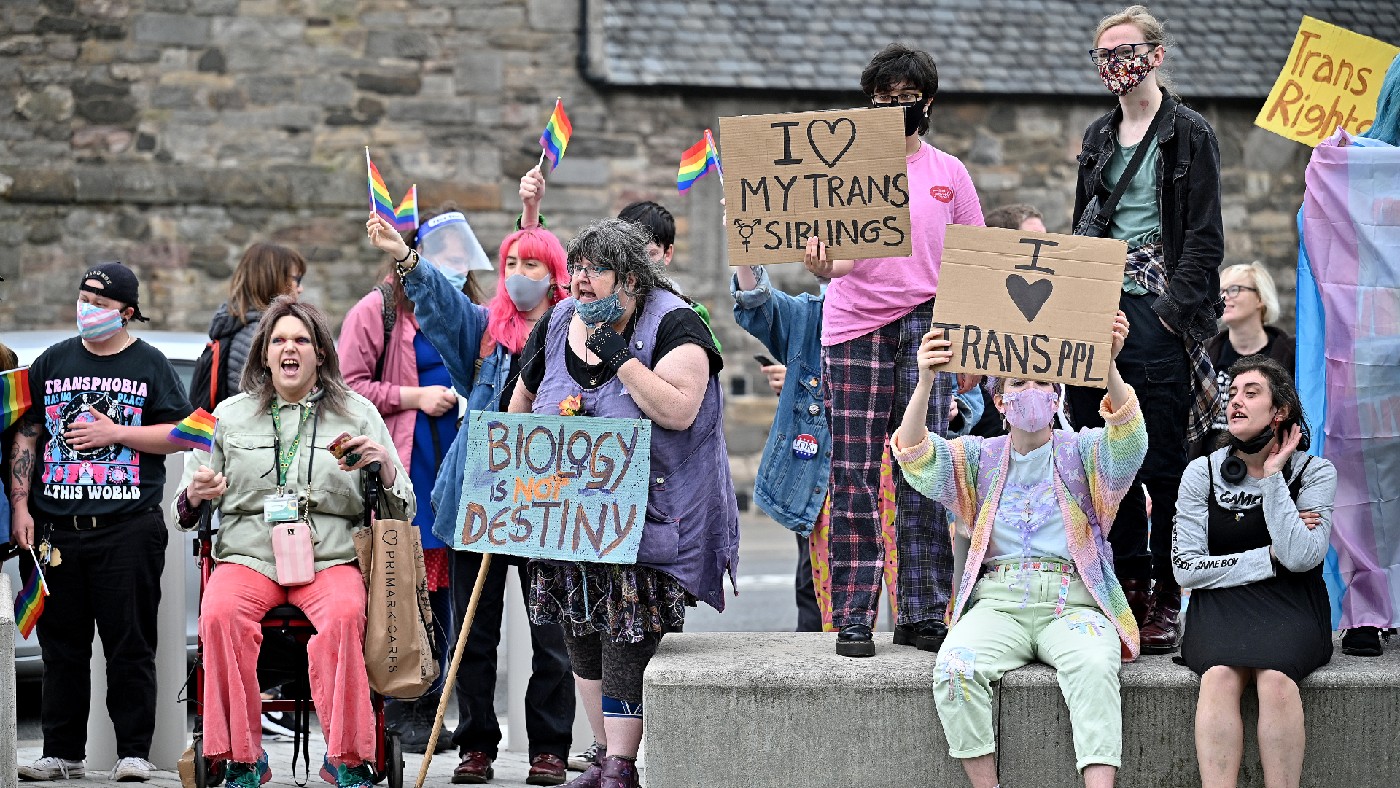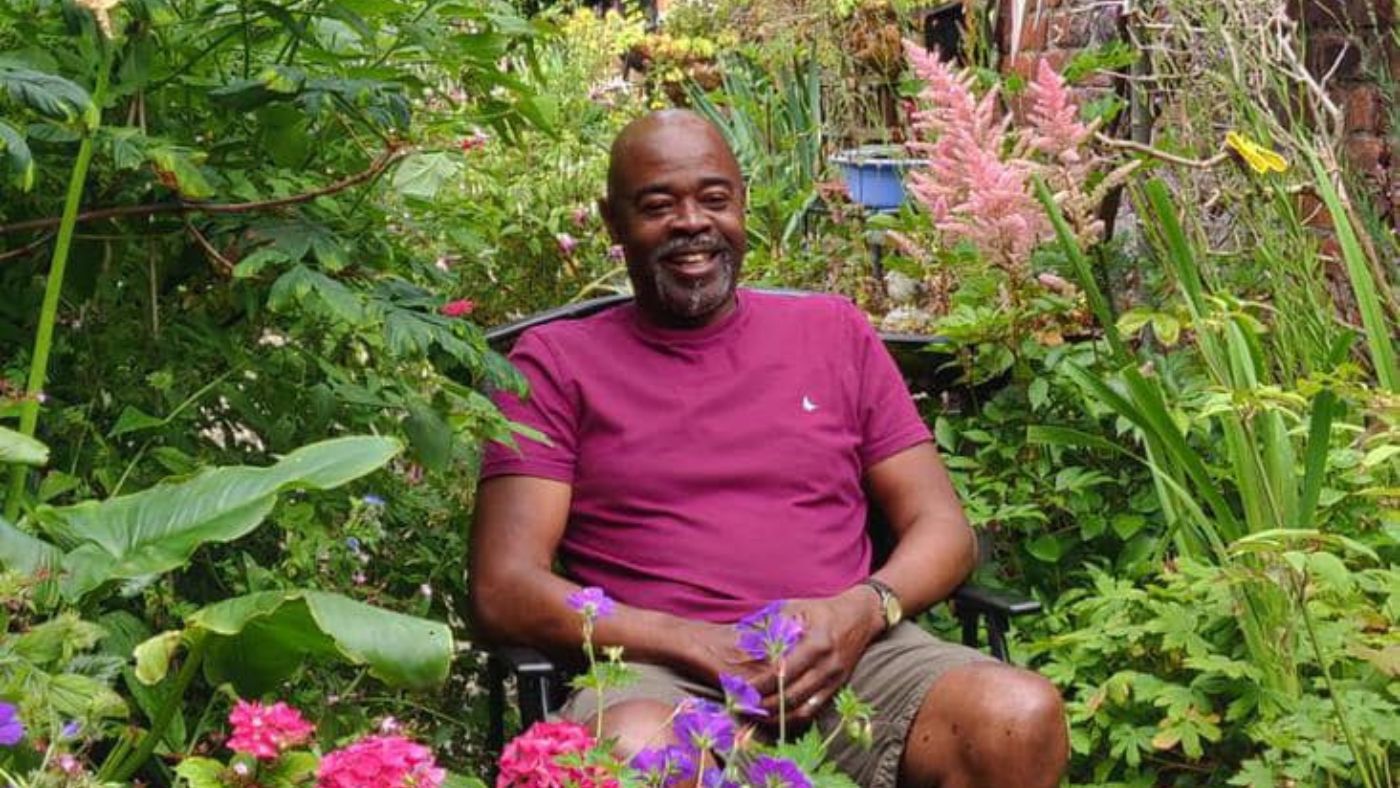The trans debate: a fiercely-fought battleground in the nation’s culture wars
How rights for transgender people has become a major issue in the UK

A free daily email with the biggest news stories of the day – and the best features from TheWeek.com
You are now subscribed
Your newsletter sign-up was successful
Why is this row taking place now? The main flashpoint has been the question of legal gender recognition. Gender reassignment surgery has been available in Britain since the 1960s, when a pioneering clinic opened at Charing Cross Hospital.
But in 1970, a court case annulling the marriage of a trans woman, April Ashley, made it impossible for people to change their legal gender in England and Wales unless they were born biologically intersex, which in practice meant they usually could not marry their partners or adopt.
A successful challenge in the European Court of Human Rights in 2002 – and a recognition among MPs that the existing law was oppressive – led to the Gender Recognition Act 2004, which lets people change their legal gender under fairly strict conditions. A consultation about making those conditions less strict, launched in 2018, brought the current rows to the boil.
The Week
Escape your echo chamber. Get the facts behind the news, plus analysis from multiple perspectives.

Sign up for The Week's Free Newsletters
From our morning news briefing to a weekly Good News Newsletter, get the best of The Week delivered directly to your inbox.
From our morning news briefing to a weekly Good News Newsletter, get the best of The Week delivered directly to your inbox.
What were the objections?
Theresa May’s government proposed allowing trans people to “self-identify”, dropping the requirement for a medical diagnosis of “gender dysphoria”. Trans campaigners complain that this requirement equates being trans to a mental illness, and want a simpler declaration instead.
But critics view tinkering with the process as a slippery slope to a gender free-for-all. Some of their objections are practical: concerns about predatory men declaring themselves female to gain access to women-only spaces, such as shelters; about trans women dominating women’s sport; or about young people who are gay or confused being put on a path to transition by over-eager therapists.
Other objections are more philosophical: that such moves erase the biological reality of womanhood. Efforts to make language trans-inclusive – replacing the word “women” with phrases such as “people who menstruate” – have been a particular bone of contention.
A free daily email with the biggest news stories of the day – and the best features from TheWeek.com

What is the philosophical argument?
Feminists have long distinguished between sex (a biological characteristic) and gender (a culturally constructed identity). But recent biological research has also complicated the idea of binary sex distinctions: some people straddle the boundaries.
Postmodern gender theorists have synthesised these ideas, concluding that sex too is artificial and culturally constructed. Gender, they argue, is what matters: a trans woman is a woman, even without reassignment surgery.
By contrast, “gender-critical” feminists, like the philosopher Kathleen Stock, counter that sex largely is binary; that it profoundly shapes experience, and is central to women’s rights. To Stock, the idea that trans women are women is a “fiction”, which one might accept out of politeness, but no more. Yet LGBTQ+ groups such as Stonewall see this as transphobic, since it denies people’s chosen gender identity.
Why is that important?
Trans activists often see gender-critical views as a form of hate speech, which raises significant freedom of speech issues. Famously, there was the case of Maya Forstater, who lost her job after writing on Twitter that people cannot change their biological sex. At an employment tribunal, the judge found that her beliefs were “not worthy of respect in a democratic society” since they conflicted with the fundamental rights of trans people.
But in Forstater’s appeal, a High Court judge found that her views were in fact protected under the Equality Act, because they were widely shared, and “did not seek to destroy the rights of trans persons”.
What about the practical issues?
Gender critics aren’t short of examples of what they see as trans ideology running amok. The NHS’s Gender Identity Development Service has been overwhelmed by referrals, especially of teenage girls. There have also been some cases of trans women abusing other women in all-female spaces: Karen White, a convicted paedophile and rapist who was housed in HMP New Hall, a women’s prison, while still legally a man, sexually assaulted two inmates in 2017.
Stonewall has been accused of giving employers incorrect pro-trans legal advice, and advising them not to use the word “mother”. The toxic atmosphere around the issue, many say, has created a climate of fear and self-censorship in universities and other liberal institutions: Stock left her job at Sussex University following a campaign against her.
What do trans-rights activists say in response?
Trans activists argue that gender-critical rhetoric, and newspaper headlines, insistently link trans women with sexual violence, which is deeply unfair and stokes anti-trans feeling. The trans community is small and very vulnerable (an estimated 200,000 to 500,000 in the UK, though there are no robust figures). Trans people are far more likely to be the victim of violent crimes than to commit them.
Activists also argue that there’s no real evidence self-identification would adversely affect female-only spaces or women’s rights. Ireland moved to such a system in 2015, with no ill effects. Besides, they suggest, the legal recognition issue is a red herring, safety-wise. You don’t need legal papers to enter a woman’s toilet. The prison authorities have considerable legal leeway when housing trans women: in Karen White’s case, poor risk assessment, rather than ideology, was to blame.

Is compromise possible?
In their most extreme forms, the trans rights and gender-critical positions are irreconcilable. But there’s more common ground than you might guess from the media controversies. It probably doesn’t help that much of this debate has taken place on Twitter, a medium which tends to exaggerate mutual animosity and generational incomprehension.
In fact, most gender-critical feminists are broadly supportive of transgender rights; and most trans people are painfully aware of the existence of biological sex. It’s possible that many of them aren’t even on Twitter.
-
 Switzerland could vote to cap its population
Switzerland could vote to cap its populationUnder the Radar Swiss People’s Party proposes referendum on radical anti-immigration measure to limit residents to 10 million
-
 Political cartoons for February 15
Political cartoons for February 15Cartoons Sunday's political cartoons include political ventriloquism, Europe in the middle, and more
-
 The broken water companies failing England and Wales
The broken water companies failing England and WalesExplainer With rising bills, deteriorating river health and a lack of investment, regulators face an uphill battle to stabilise the industry
-
 Earring lost at sea returned to fisherman after 23 years
Earring lost at sea returned to fisherman after 23 yearsfeature Good news stories from the past seven days
-
 ‘Irony’ as Zoom calls staff back to office
‘Irony’ as Zoom calls staff back to officefeature And other stories from the stranger side of life
-
 Bully XL dogs: should they be banned?
Bully XL dogs: should they be banned?Talking Point Goverment under pressure to prohibit breed blamed for series of fatal attacks
-
 Netanyahu’s reforms: an existential threat to Israel?
Netanyahu’s reforms: an existential threat to Israel?feature The nation is divided over controversial move depriving Israel’s supreme court of the right to override government decisions
-
 Farmer plants 1.2m sunflowers as present for his wife
Farmer plants 1.2m sunflowers as present for his wifefeature Good news stories from the past seven days
-
 EU-Tunisia agreement: a ‘dangerous’ deal to curb migration?
EU-Tunisia agreement: a ‘dangerous’ deal to curb migration?feature Brussels has pledged to give €100m to Tunisia to crack down on people smuggling and strengthen its borders
-
 Manchester alleyway transformed into a plant-filled haven
Manchester alleyway transformed into a plant-filled havenfeature Good news stories from the past seven days
-
 China’s ‘sluggish’ economy: squeezing the middle classes
China’s ‘sluggish’ economy: squeezing the middle classesfeature Reports of the death of the Chinese economy may be greatly exaggerated say analysts